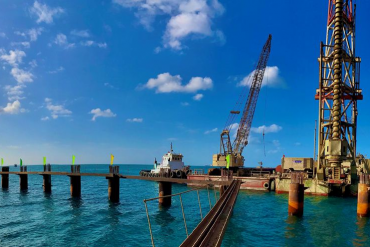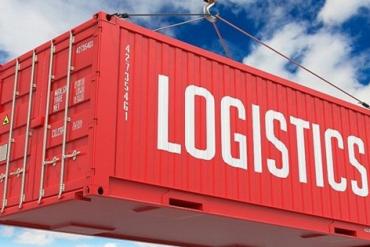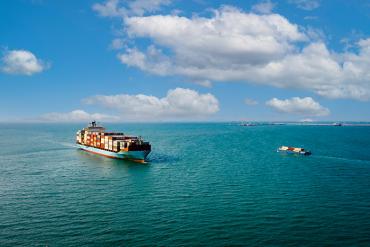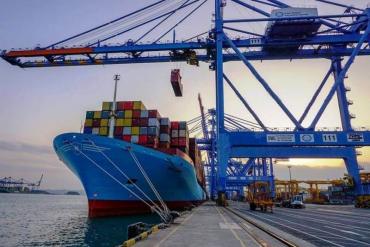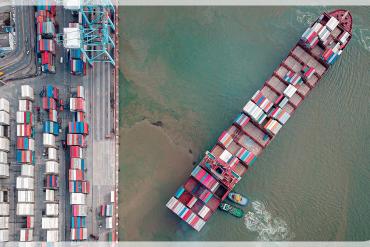- MAKING THANH HOA A LOGISTICS CENTER OF THE NORTHERN CENTRAL (25/05/2021)
- VIETNAM LOGISTICS SERVICE INDUSTRY IS EXPECTED TO GROW BY 15% - 20% BY 2025 (12/03/2021)
- IMPORTERS FACE TOUGHEST TRANS - PACIFIC SERVICE CONTRACT TALKS IN YEARS (01/03/2021)
- VIETNAM INCREASED 3 STEPS IN LOGISTICS 2021 INDEX RANKINGS (26/02/2021)
- Logistics News - February 2021 (23/02/2021)
- Logistics with agricultural trade (12/09/2020)
- An insider's guide to freight forwarding (05/09/2020)

Key Trends Impacting Logistics in 2020
Here’s what buyers should know about the key trends impacting logistics and transportation this year.
From digitization to blockchain to the new maritime emissions regulations, the issues impacting global logistics this year continue to make headlines. For procurement professionals, any or all of the above could affect product availability, product pricing, and transportation costs as we move further along into the year. “In 2020, we’re seeing new global pressures, opportunities in ecommerce markets, and alliances coalescing around new technologies,” writes FreightWaves’ Kayla Matthews.
New Emissions Regulations
Matthews points to the new emissions for maritime shipping as the top trend that’s changing the logistics environment this year. Beginning Jan. 1, 2020, the limit for sulphur in fuel oil used on board ships operating outside designated emission control areas was reduced to 0.50% m/m (mass by mass).
According to the International Maritime Organization, the new “IMO2020” rule will “significantly reduce the amount of sulphur oxides emanating from ships and should have major health and environmental benefits for the world, particularly for populations living close to ports and coasts.”
“Freight-carrying ships have been under fire for heavy crude oil emissions since at least 2005, the year the IMO ratified Annex VI, which began tightening emissions standards for ships at sea,” Matthews writes, noting that the change could raise the cost of fuel oil from $400 to $600 per metric ton. “It’s an expenditure made for the best possible reasons, but it may still cause a ripple effect.”
Logistics Embraces Digitization
According to Forbes, this could be the year that the traditionally staid supply chain and logistics industry will speed up its drive to digitize, turning to autonomous drones, robotics, artificial intelligence, blockchain, the Internet of Things (IoT) and data analytics to ensure faster deliveries at lower rates.
“Classic logistics heavyweights Deutsche Post’s DHL and C.H. Robinson are pouring millions of dollars into such technology,” the publication reports. Forbes says that the disruptors to watch in this arena include Flexport, which raised a $1 billion round led by Softbank Vision Fund last February, and Arrive Logistics, which raised $25 million in June. Others to watch are Cloudleaf, Polte and SenseGiz, which offer IoT services and sensors for shippers to improve visibility throughout the supply chain.
“FourKites uses machine learning and data analytics for more efficient deliveries,” Forbes continues. “Others innovating in delivery are Dispatch, which offers an Uber-like service connecting businesses with drivers, and Zipline, whose autonomous drones deliver medical supplies to remote areas.”
Is Blockchain Coming of Age?
Blockchain is also making waves in the logistics pool, where companies are continually searching for ways to work smarter, faster, and more securely—all of which blockchain professes to offer its leading-edge users.
Blockchain is track to bring a 5% increase in global GDP and a 15% rise in trade volume this year, FreightWaves reports. “Blockchain provides unprecedented visibility and security for this first- and third-party information,” Matthews writes. “The industry knows it, which is why groups like the Blockchain in Transport Alliance (BiTA) are growing.”
That’s because blockchain helps achieve a supply chain trend that’s becoming common across multiple industries, she adds, thus eliminating wasteful intermediaries and recovering value companies could better use elsewhere. Whether blockchain becomes more commonplace in logistics in 2020 is still up in the air as companies strive to better understand it and how it applies to their operations.
More to Come
As buyers continue to roll out their procurement plans for 2020, they should keep these and other trends in mind. “The era of smarter and faster logistics has just begun. The industry is poised for massive growth and is expected to reach $12.3 billion by 2022,” Entrepreneur reports.
“Today, efficient logistics is not just an added advantage for companies, but a key differentiator and growth enabler in the supply chain,” it continues. “As we enter the new decade, we will see a number of trends that will shape the future of logistics in 2020 and beyond.”
Extracted from: SourceToday
Author: Bridget McCrea
Source: https://www.sourcetoday.com/supply-chain/article/21124049/key-trends-impacting-logistics-in-2020



